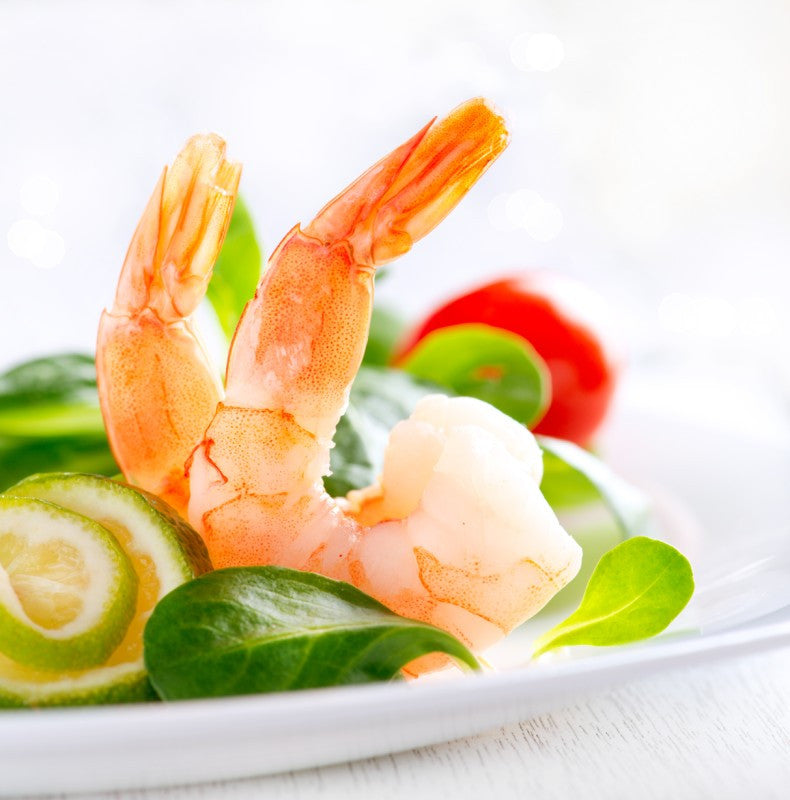
Prawns: Some Buying and Cooking Information and Their Health Benefits
Share
Buying and Cooking
Crustaceans that come in various sizes, prawns used to be a luxury. But they are now considered a common ingredient, and you can easily enjoy their sweet, firm, meaty flesh. You can buy the smaller, more standard prawns, which are known as cold-water prawns, peeled or with their shells still on. Warm-water prawns, on the other hand, are typically sold raw and cooked in the shell.
To cook prawns, you can boil them for a couple of minutes. Or, you can have them barbecued, deep-fried, grilled, or stir-fried. Once they are cooked, their flesh turns pink and opaque. It is important they are thoroughly cooked, although overcooking them is a no-no since it causes them to be woolly and tough.
Cold-water prawns are great a addition to cold dishes, such as salads. Moreover, it is better to eat them cold than reheated because they tend to shrivel and dry out fast. Warm-water prawns, which need peeling and de-veining, are excellent for barbecuing, grilling, and stir-frying.
Health Benefits
One health benefit of eating prawns is that they are an excellent source of protein, a macronutrient needed for the production of essential enzymes and hormones in the body. It is also a major source of energy and boosts the immune system by forming antibodies that help prevent infection, illness, and disease. You will get more than 22 grams of protein from a three-ounce serving of prawns, which is about the same amount of protein you will get from a comparable serving of beef or chicken.
Furthermore, prawns are rich in omega-3 fatty acids, which are unsaturated fats known to be good for your cardiovascular health. They have also been found to help prevent depression and Alzheimer’s disease and dementia. Consuming a three-ounce serving of boiled or steamed prawns can give you approximately 0.6 grams of these healthy fatty acids.
Prawns can also provide you with certain vitamins and minerals that help boost your health. For instance, they are rich in niacin, vitamin B6, and vitamin B12, which help your body produce energy and red blood cells. They are also essential for maintaining normal nerve function. The notable minerals that you can get from prawns include iron, zinc, magnesium, and phosphorous. You need iron so that oxygen is transported from one body cell to another. And, because the brain utilises approximately 20 percent of oxygen in the bloodstream, the mineral is essential for maintaining brain function since it helps supply oxygen to the blood. Zinc is needed for keeping your immune system strong, while magnesium and phosphorous are essential for keeping your bones strong.
However, prawns tend to have high sodium content; a three-ounce serving of prawns contains 805 milligrams of sodium. The recommended upper intake limit of sodium per day is 2,300 milligrams for adults. However, if you have a history of health conditions and are 51 years of age or older, then the limit is 1,500 milligrams. As such, you may have to watch for added salt when consuming prawns.
